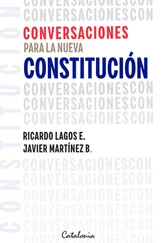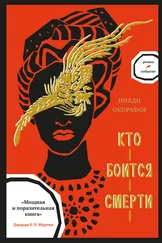Ннеди Окорафор - Lagos Noir
Здесь есть возможность читать онлайн «Ннеди Окорафор - Lagos Noir» весь текст электронной книги совершенно бесплатно (целиком полную версию без сокращений). В некоторых случаях можно слушать аудио, скачать через торрент в формате fb2 и присутствует краткое содержание. Город: New York, Год выпуска: 2018, ISBN: 2018, Издательство: Akashic Books, Жанр: Детектив, на английском языке. Описание произведения, (предисловие) а так же отзывы посетителей доступны на портале библиотеки ЛибКат.
- Название:Lagos Noir
- Автор:
- Издательство:Akashic Books
- Жанр:
- Год:2018
- Город:New York
- ISBN:978-1-61775-523-1
- Рейтинг книги:4 / 5. Голосов: 1
-
Избранное:Добавить в избранное
- Отзывы:
-
Ваша оценка:
- 80
- 1
- 2
- 3
- 4
- 5
Lagos Noir: краткое содержание, описание и аннотация
Предлагаем к чтению аннотацию, описание, краткое содержание или предисловие (зависит от того, что написал сам автор книги «Lagos Noir»). Если вы не нашли необходимую информацию о книге — напишите в комментариях, мы постараемся отыскать её.
Lagos Noir — читать онлайн бесплатно полную книгу (весь текст) целиком
Ниже представлен текст книги, разбитый по страницам. Система сохранения места последней прочитанной страницы, позволяет с удобством читать онлайн бесплатно книгу «Lagos Noir», без необходимости каждый раз заново искать на чём Вы остановились. Поставьте закладку, и сможете в любой момент перейти на страницу, на которой закончили чтение.
Интервал:
Закладка:
Madu and Ifechi walked back home from school in the afternoon heat. As they did most days, they walked in silence until they got onto their street, where Madu let go of Ifechi’s hand and slowed their pace.
Ifechi hopped onto the rim of the gutter that ran beside the road and walked on it. She spread her arms for balance as she looked down into the gutter, at the litter and grime inside it. After a while, Madu pulled his sister off the rim and close to his side. “There’s this girl in my class,” he said. “She showed me her panties today, during break.”
“Haa!” Ifechi gasped, covering her mouth with the palm of one hand. She stopped walking, forcing Madu to stop too. “Why? What were you doing?”
Madu shrugged. “Nothing. We were just playing. I asked her what color they were, and she raised up her uniform and showed me.” Madu eyed his sister. “What? Why are you saying haa like that?”
“Madu... have you forgotten what happened with Daddy’s films?”
“So what? This wasn’t a film.”
“But it’s still bad! Did you touch her?” Madu resumed walking, and Ifechi went on as she followed. “Madu, Mummy said I should tell her if you do anything bad again-o.”
Madu spun to face his sister, and she noticed for the first time how much like their father he looked. She took a small step back.
“Good girl,” Madu sneered. “So you want to report me to Mummy now, because I covered for you. Didn’t we watch those films together? And wasn’t it me and you that went back to look for Pussy Palace even after Daddy beat me? You would have still continued to watch with me if Daddy didn’t remove the films from the cupboard. But you are now the good one, and Madu is bad.”
“No,” Ifechi muttered, staring at her feet.
“You’re just a baby. So you can run and tell Mummy if you want. That’s what a baby would do.” Madu leaned toward his sister, bringing his face as close to hers as possible without their skins touching. “Baaaabyyyy.”
He stalked off and Ifechi stood watching him, tears filling her eyes. She blinked them away and ran after him.
They were in bed that night when Madu heard their bedroom door open. He propped himself up on his elbows just in time to see Ifechi slip out the door. The sound of the TV floated in from the living room. And then all went quiet.
Several minutes passed before Madu got out of bed to follow after her. But then he heard the lash of the koboko, and Ifechi’s cry right after. He froze as it slowly dawned on him what Ifechi must have done. It was foolish. She was foolish. Still, Madu couldn’t help feeling a grudging admiration for his foolish little sister.
He was sitting up on his bed when Ifechi returned. He could only see a silhouette of her in the darkened room but he knew her legs would feel like melting wax, pain pulsing through every nerve. He knew that the heat would spread from her behind, infecting the rest of her like a fever.
She fell facedown onto her bed, crying, her legs hanging out over the frame. Madu stood and went to the dresser. He felt around the top of it until his fingers touched the tub of Vaseline. He picked it up and took off the lid. Then he went to Ifechi and raised the hem of her nightie. She shoved it back down and shifted an inch or two on her bed, away from Madu. He waited a few seconds before trying again, and this time Ifechi let him raise her nightie until it was halfway up her back. He scooped up some Vaseline with his right forefinger.
Ifechi flinched as Madu touched her skin. He paused for a moment, and then he began rubbing gently, his fingers making a steady circular motion on the mound of his sister’s buttock. He found it mesmerizing, and not altogether unpleasant, the feel of skin against skin, the contact made even smoother by the Vaseline.
“Why did you tell them?” he asked.
He was on the second buttock when she answered. “Because I am bad too.”
Madu’s fingers went still as he contemplated his sister’s words, the sureness with which she had said them. For the first time he could remember, he did not know how to feel.
He went back to rubbing, his fingers going around and around in an endless loop.
Joy
by Wale Lawal
Surulere
Near the end, you’d remember you forgave Joy — nothing too vivid, at best the memory would occur to you as fleeting as a hint. You’d recall the evening of her first transgression and that she believed you had forgotten about her being half-naked in your bedroom, trying on your clothes. And you’d despise yourself for this. You’d wish you had not stayed quiet, had not walked over to your side of the bedroom and picked up your phone from the dresser, when you should have slapped the girl across the room. Your mother always said you had a heart like an akara — you could go through fire and remain soft. Turns out your mother was right.
You didn’t even know the girl’s real name. But you knew it was Mama Lateef’s style to give her girls English names once they arrived in Lagos. Mama Lateef, who supplied your mother with house girls when you were growing up, had once explained to your mother that English names made her clients comfortable; the least of her reasons being that names from the West bore neither secrets nor ancestral curses. In her line of business, English names were rivers old and without current; they couldn’t possibly carry the dead.
Mama Lateef was in her sixties now and sat in your living room repeating the same things she had told your mother all those years ago, and then she suggested that you and your husband could call the girl Joy.
“Joy?” you said, and the girl nodded on impulse.
“Ṣ’o ri?” Mama Lateef said, amused. “The girl has already taken the name.”
Joy was from Cotonou, in Benin. As far as you knew, she had no family, as was typical of Mama Lateef’s girls. She was slim, not pretty, with big marble eyes and even bigger pink lips. She spoke Fon, Yoruba, and some French, and her English, which was barely basic, Mama Lateef swore would improve quickly. According to Mama Lateef, Joy was nineteen, though you sensed the girl was younger: fourteen, sixteen at the most. Her age troubled you, and you told Mama Lateef that you needed to discuss this with your husband first; and, thinking you were going to ask for his permission, Mama Lateef said she understood.
But Joy was disappointed, would sulk as if the entire world had collapsed on her tiny frame. And in a moment of weakness at the end of your meeting, you assured Joy that you liked her. That your delaying was for her own good. Later in the evening, Yinka, your husband, suggested that you take the girl anyway. What did it matter if she was underage? Aimọye eyan: her type see much worse in Lagos than a young couple, and surely it wouldn’t be helpful to leave her with Mama Lateef, who had all kinds of clients.
“She’s better off living with people like us,” he said. “We’ll feed her well, can even send her to school. After all, we only really need her to help around for when the baby comes.”
He was that good, quick-thinking, quick with you; his buddies from university hadn’t called him Papapa for no reason. The baby was your pressure point and the prospect of raising a child together always made the two of you happy. So that was how you settled the argument that night — happy.
That same night, you called Mama Lateef and told her you were interested in the girl, and the next day you hired her. Joy arrived in the morning, shortly after Yinka left for work, with two black polyethylene bags filled with her belongings, all of which she showed you — as was customary — with Mama Lateef as witness. Joy didn’t come with much: three T-shirts, two skirts, a new toothbrush, a pair of green rubber slippers, a pair of black, worn-out leather flats, a Bible, an unopened pack of Always, and two pairs of underwear — no bras. Days later, Mama Lateef’s reaction would still be fresh in your mind. “Bra nkọ? Bra da? Ṣe ere lo ro p’owa ṣe nibi ni? What nonsense!”
Читать дальшеИнтервал:
Закладка:
Похожие книги на «Lagos Noir»
Представляем Вашему вниманию похожие книги на «Lagos Noir» списком для выбора. Мы отобрали схожую по названию и смыслу литературу в надежде предоставить читателям больше вариантов отыскать новые, интересные, ещё непрочитанные произведения.
Обсуждение, отзывы о книге «Lagos Noir» и просто собственные мнения читателей. Оставьте ваши комментарии, напишите, что Вы думаете о произведении, его смысле или главных героях. Укажите что конкретно понравилось, а что нет, и почему Вы так считаете.




![Ннеди Окорафор - Бинти [litres]](/books/399229/nnedi-okorafor-binti-litres-thumb.webp)
![Ннеди Окорафор - Кто боится смерти [litres]](/books/401080/nnedi-okorafor-kto-boitsya-smerti-litres-thumb.webp)






